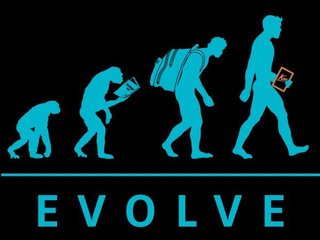The FDA outlines draft guidance on AI for medical devices
The agency also published draft guidance on the use of AI in drug development
Read more...
I graduated from college over four years ago (Wow. Has it really been that long?). But memories of spending hundreds of dollars in textbooks remains fresh in my mind. Paying $100 for a book I was only going to use for a few months was painful, to say the least.
High textbook costs only compound the already terrible student-loan problem, which the S&P recently warned may be the next bubble to burst, doing serious harm to the economy.
One state, at least, is doing something to ease this burden a little bit.
The California State Senate passed two bills Friday, SB 1052 and SB 1053, that are designed to create a free open digital textbook library for students.
The California Open Education Resources Council (COERC), established in SB 1052, will oversee the library. COERC will be made up of faculty members from the University of California, California State University and Community Colleges to determine which courses will be included in the library.
While other companies have been selling digital textbooks, including Apple with its iBook Authors tool, and Kno, which recently began providing digital textbooks to grades K-12 after only supplying them for higher education for the last two years, this is the first time that a government would be aiding students by providing them with free textbooks.
“This is the first time government has come in with substantial dollars that match philanthropic efforts to create a library where students can access free textbooks and faculty can utilize their skills to remix, revise and repurpose these textbooks for their students,” said Dean Florez, president of the 20 Million Minds Foundation, in a statement. 20 Million Minds is a nonprofit whose mission is to reduce textbook costs for students.
The two bills now simply require the signature of Governor Jerry Brown to be passed into law.
Other ways of reducing education costs
Student loan debt is now greater than credit card debt and is approaching $1 trillion, while the employment rate among young adults is at a 60-year low. Students are coming out of school with greater amounts of debt, and fewer viable options for paying it off.
Online education companies have recently become a way for students to get an education at a fraction of the cost, as fewer students are able, or willing, to put themselves in debt in their early 20s.
During the autumn of 2010, over 6.1 million students took at least one online class, a 10% increase from the previous year, a report from The Sloan Consortium said.
The number of students enrolled in at least one online course rose for the ninth straight year, as did its percentage of total enrollment, reaching over 30% in 2010.
If you need any more proof that this type of education is becoming more popular, look at how the companies providing education are raising money.
In April, StraightLine raised $10 million, and 2tor raised $26 million to bring its total fundraising to just under $97 million. Piazza raised $6 million for social learning in January, while Memrise raised $1.05 million to gamify language learning and Schoolfeed received $1.75 million in February.
Some two-thirds, or 65%, of higher education institutions cited online classes as a key part of the long-term goals, The Sloan Consortium report also noted.
For a great series on the changing education landscape, check out Faith Merino's Resetting Educaiton series.
(Image source: cheap-textbooksforcollege.blogspot.com)
The agency also published draft guidance on the use of AI in drug development
Read more...The biggest focus areas for AI investing are healthcare and biotech
Read more...It will complete and submit forms, and integrate with state benefit systems
Read more...Startup/Business
Joined Vator on
Founded in 2009 and publicly launched in 2011, Piazza is a free online gathering place where students can ask and answer questions 24/7, under the guidance of their instructor. Anyone can create a class at Piazza.com to initiate class discussion. Students spend on average four hours a night on Piazza working together in real time with classmates and instructors to find the answers they need at the time they need them. Piazza is FERPA-compliant and used in hundreds of colleges and universities.

